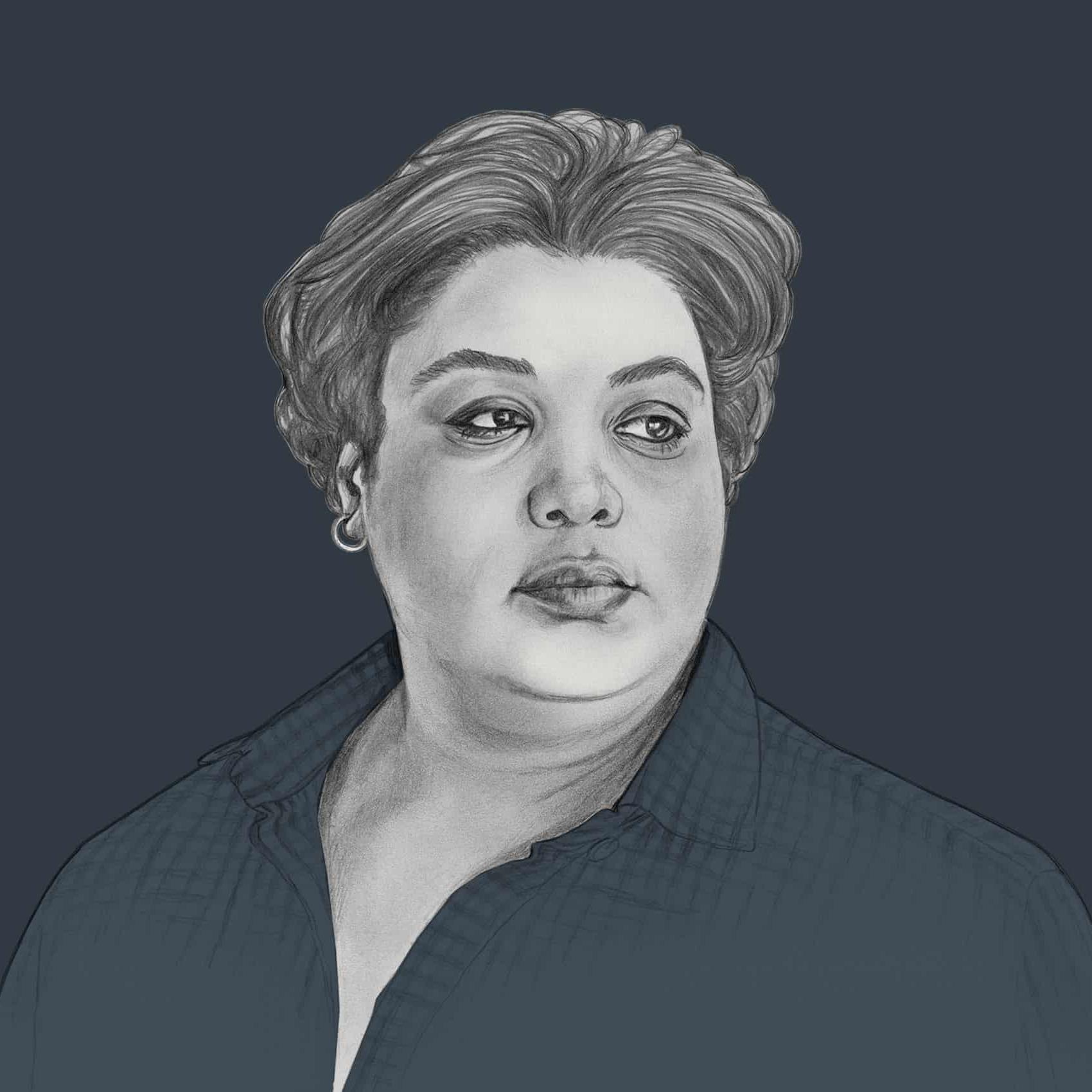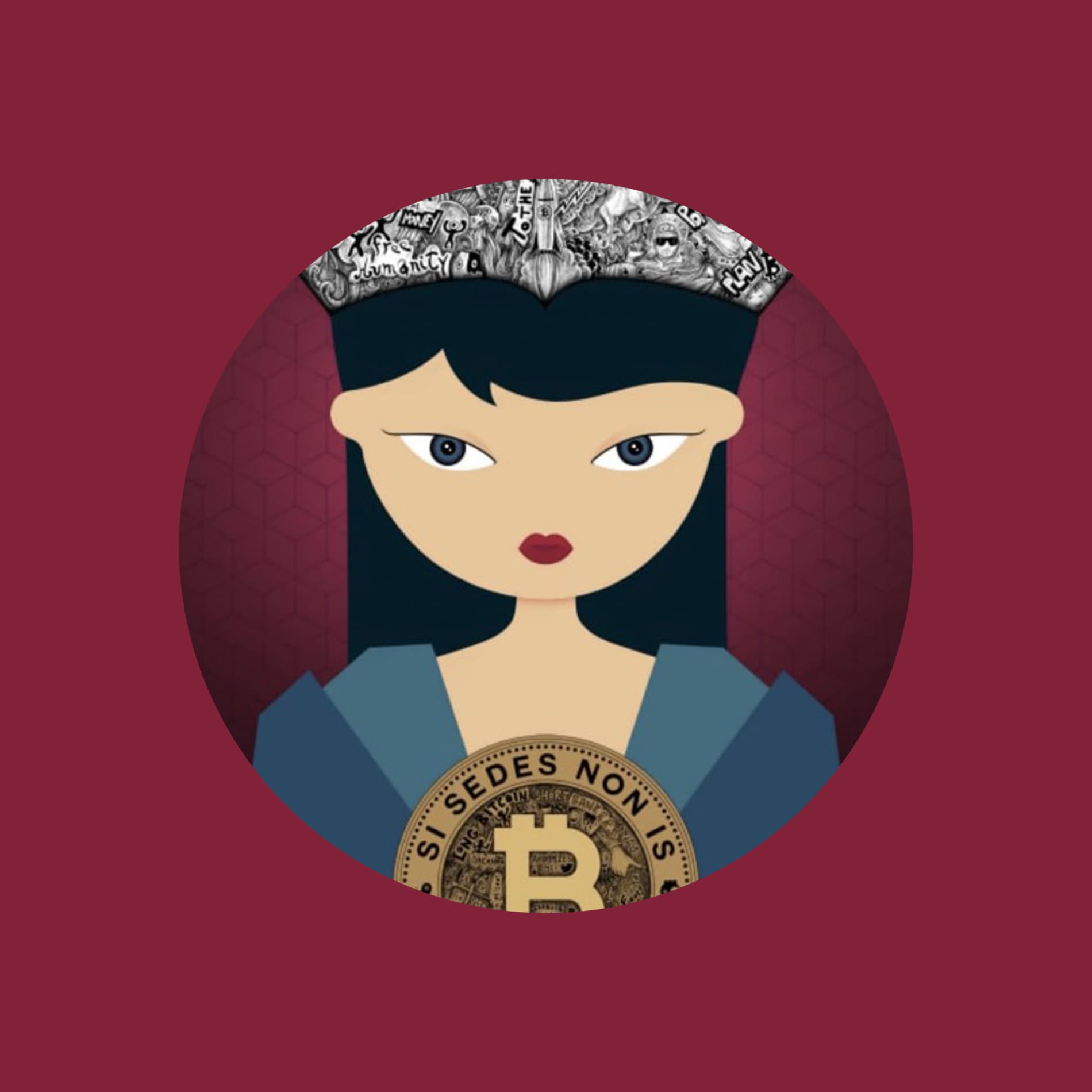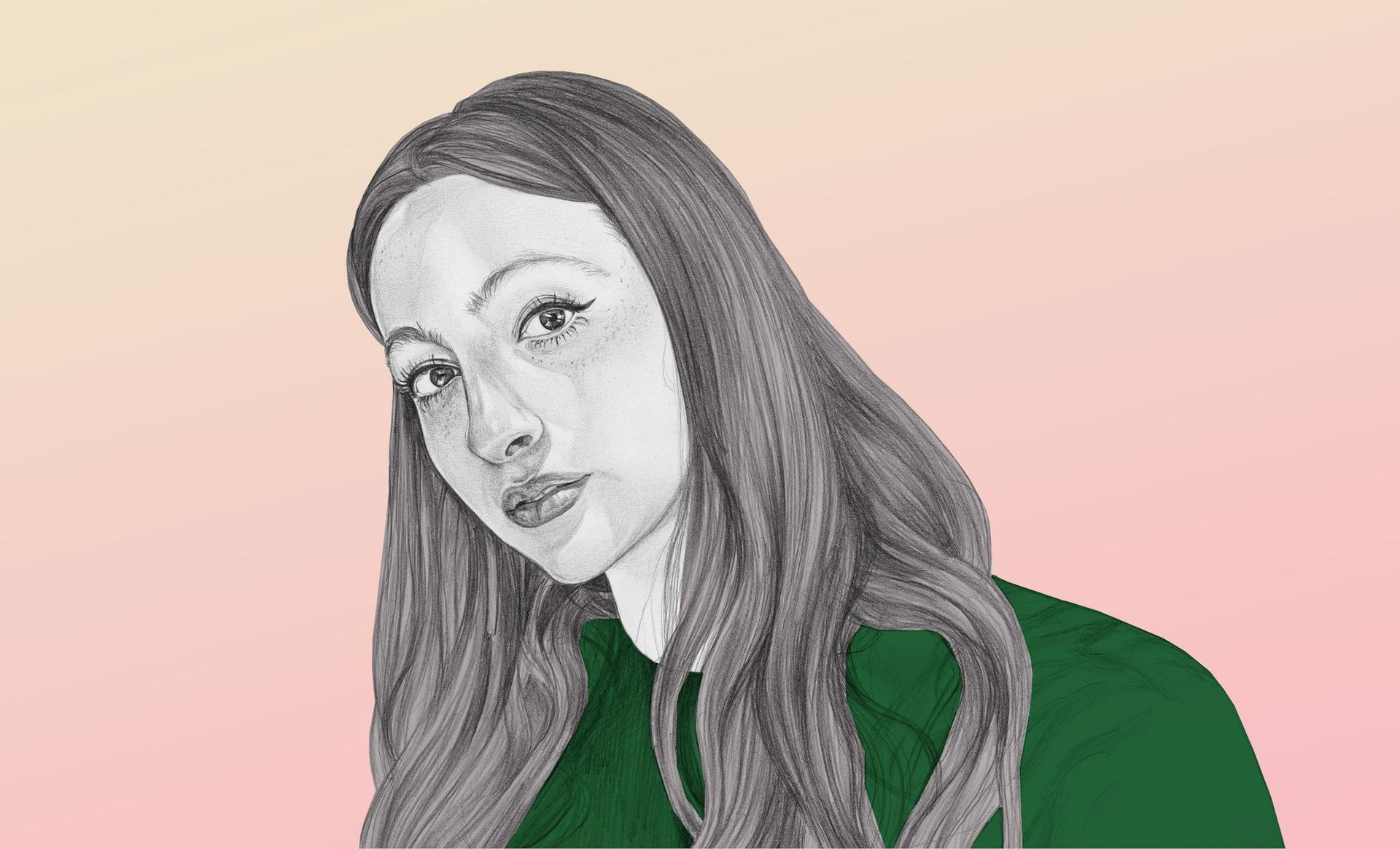
Money Diaries
Roxane Gay on Financial Independence: 'The Most Important Thing a Woman Can Do for Herself'
She's the best-selling author of 'Bad Feminist' and 'Hunger.' And until five years ago she'd never saved a penny. The author on her complicated relationship with money.
Wealthsimple makes powerful financial tools to help you grow and manage your money. Learn more
I think the most important thing a woman can ever do for herself is have financial independence. Even if you’re saving five dollars a paycheck. I totally understand the realities of the world, but save five dollars a paycheck. It really, really helps.
When I was a young child, we were middle class. As I started entering my teenage years, my parents became relatively wealthy. My mom stayed at home to raise us, and my dad was an engineer. We moved a lot, but we always lived in really nice neighborhoods, and we always had nice houses. When we were really young, the cars were average — and my dad will hold on to a car forever. He’s very frugal. So for a long time, we had a Pontiac Grand Prix. I think it was a 1974 Pontiac Grand Prix, and he held on to it for 20 years. Then he upgraded himself to a Honda Civic, and he got my mom a BMW.
We did go on family vacations. When we were younger, they were road trips, because it’s really expensive to fly a family of five. But we also went to Haiti in the summers, and the only way to get there is by plane. I did have braces, and we were on athletic teams — and even though at times my parents struggled, they never showed us. They always made sure they could provide us with everything we needed. I have two younger brothers. With Christmas, my parents are super Catholic, so we did get great gifts, but they were more invested in us understanding that it was Jesus’s birthday. And on our birthdays, they wanted us to understand that it’s a celebration of our lives. They never wanted to spoil us, and so they didn’t — but they kind of also did. When I look at what they provided for us, it’s like, yeah, we were very spoiled. At the time, we were like, why can’t we do what all our American friends are doing? And get what they’re getting? But when I look back, I realize our lives were bountiful.
At 13 I went to boarding school. Before then, I had understood that everyone around us was pretty much in the same socio-economic situation. When I went to boarding school, I understood the difference between comfortable and ludicrously rich. It’s hard to explain — I understood that these were people with generational wealth, because their names were on buildings on campus. Like one day I was in the bathroom, and I looked down at the grate and saw the name on the grate, and was like oh. That’s the same name as my classmate. And then I realized. Oh. Oh. And when there’s a Heinz ketchup heir that’s your classmate, you start to realize, this is just a different level. And they would talk about going to Europe for break, and skiing in Switzerland, and some of them had cars, even though you’re not supposed to have cars on campus. And they would park them nearby, and it was just absurd. Jewelry, watches, even their clothes — designer clothes, designer bags. Stuff like that.

Sign up for our weekly non-boring newsletter about money, markets, and more.
By providing your email, you are consenting to receive communications from Wealthsimple Media Inc. Visit our Privacy Policy for more info, or contact us at privacy@wealthsimple.com or 80 Spadina Ave., Toronto, ON.
My parents really believed in children working, so we had chores growing up, and I would babysit, and my brothers had paper routes. In high school, my dad was like, 'You need to get a job, so you don’t lose all sense of financial perspective.' So I worked washing dishes at first, and I worked in the library, and I also had little jobs in college as well. Washing dishes…this was like 1988, so [I earned] maybe three or four dollars an hour. It was just my dad wanting me to appreciate the value of a dollar. It really was about perspective. That money I mostly spent on food. It was a dark time, and food was my drug.
My parents also sent me an allowance at school, so I also sometimes spent it on clothes and music — I did love music; I did buy a lot of cassette tapes. With the allowance came the expectation that I would get straight A's.
I have never — until five years ago — saved a penny.
College? It was assumed. There was no option. My parents told me I needed to major in something that would make me money. The Haitian trifecta: engineer, doctor, lawyer. So I was pre-med, and then architecture, and then finally, when it was my choice, I majored in liberal arts. I worked — actually, it was one of the best-paying jobs I’ve ever had — in the computer lab in the underground library on campus. As in, literally underground. So that was a nice job, and I made nine dollars an hour. So it was just a really great job. I liked computers, and this was in the early days of computers.
My parents paid my rent until I was 30 years old. I was mostly still in school, but some of those years I was not in school. They definitely supported me through my master's degree, and then I took about five years off after my master's degree, and I worked. And I actually made a good salary, because I was living in Lincoln, Nebraska, but my parents paid my rent. In my defense my rent was $385. They could afford it. They supported me as long as I was working, and I was working. I worked a range of jobs during that time: I worked at an adult video store, and I worked at a bar, and then I finished my masters, and I actually worked as a writer at the University of Nebraska college of engineering. I wrote recruitment materials, and articles for the alumni magazine, and stuff for the website. I spent my money on women.
I was really, really young. Back then I thought, Oh, to get someone to like me, I have to spoil her and treat her really well. Going out to dinner, gifts, stuff like that. So I spent a lot of money on women — and electronics. I’ve always had an electronics habit.
My starting salary was good, but I have a lot of student loans. My student loan payment is $1,000 a month. And back then, that was a lot of money for me. It was eight years ago, and it was a lot of money. So I wondered, how am I going to do this and pay rent and my car payment — because I also bought a car. It was a lot. But I have never really lived beyond my means. So I just made a budget and stuck to it. I used a Google spreadsheet. And I was living in Charleston, Illinois, where my rent was maybe $600.
I have one friend I borrowed money from, and it was a lifesaver when I needed it. But that was many — like 20 — years ago. Now I am the one who lends — quote unquote lends money — to the people in my life who need it. And it’s challenging. But it is what it is. I have lent money to so many friends. It’s actually funny: The other day I lent money to a friend for her to do something that she really needed to do, and I was happy to do it. When I lend money, I just write it off. And she was like the first person who’s ever paid me back. And I was just like, wow. I didn’t know this could happen! So that was really great. But I don’t do things I can’t afford, so in general, I’m happy to do it.
A lot of people say you can’t make money from writing. And I understand where that comes from. But it’s not necessarily true. So there is that perception. But a lot of people think when you have a faculty position that your life is made. And that’s not the case, especially in the humanities. I’m really lucky that I am tenure-track, so even though the salary may not be that great, I have job security, while adjuncts do not, and I’m super mindful of that. But people also overestimate how much I make, and that’s really frustrating because it’s like, I write literary fiction and non-fiction about women…how lucrative do you think that is? Let’s manage those expectations. Which is not to say, do not cry for me, but a lot of times I think people overestimate what a best-seller means. It does mean that your book is selling really well, but I am not selling millions of copies.
Cultural ubiquity is not the same as actual money. Cheryl Strayed is another writer who talks about this. About how when her book was coming out and she was going on tour, she bounced a rent check. Money is so weird. You get paid twice a year, as a writer. And you have to figure out how to budget, without knowing how much the next check is going to be. And, especially when you’re first starting out, you may have gotten the advance, but the advance, by the time the book comes out, is probably long gone. And so much of it is going to taxes — it’s like 40%, it’s insane! I have my literary agent. I have my film and TV agent. I have two speaking agents, and I have an entertainment lawyer — they all take a cut. And then I have two assistants I pay.People don’t get just how much we’re paying in taxes and commissions before we ever get to pay ourselves as writers.
I wish that when I was younger, I understood the value of savings. Because now I have savings — and I understand. What it gives me is peace of mind. If something horrible happens, I’m going to be OK for at least a year. And I just wish I had started saving earlier and understood the importance of saving. I also wish I’d gotten into the investing game earlier. Instead of leaving my money sitting in a savings account where it’s earning like point 0.01% interest — there are thingsyou can do with your money, even on a small scale, that will be beneficial to you in the future.
Now? I have a savings account, a checking account, credit cards. I have a 401(k), I have a SEP IRA which is for self-employed people, and then I have an investment account. My investment broker is super conservative, which is fine by me. And so I give him $3,000 a month, and he takes care of it. It just sits, and I watch the money grow up. And it gets a return of about 9%, which is pretty good.I have $149,000 in student loans, so I’m not afraid of debt. Like whatever! I’m going to pay this off for the rest of my life. But, in general, I don’t carry debt. I have no problem with a mortgage — I think home ownership is important for black women. So that’s definitely on the agenda. I’m working on it right now.And I would like to buy a second home in Palm Springs, just as an investment — that’s a goal that I would like to achieve, to buy a second home.
My overall philosophy about money is that you can’t take it with you. I really, really believe that. It’s important to save and be prepared and blah blah blah, but you literally can’t take it with you. And I don’t have kids. So that frees me to enjoy my money while I’m alive.
As told to Dodai Stewart exclusively for Wealthsimple; transcript edited and condensed for clarity. Originally published September 28, 2018.
Wealthsimple's education team is made up of writers and financial experts dedicated to making the world of finance easy to understand and not-at-all boring to read.










